
Cheese is highly compatible with low-carb diets, containing minimal net carbohydrates while providing substantial protein and healthy fats. Most hard and aged cheeses like cheddar, goat cheese, and Parmesan contain only 1-3 grams of net carbs per 100 grams, making them excellent choices for ketogenic and low-carb lifestyles. The fermented nature of cheese reduces lactose levels, while its high protein content supports muscle preservation and satiety. Understanding specific cheese varieties and portion control can maximize the benefits of incorporating this versatile food.
Key Takeaways
- Yes, cheese is highly compatible with low-carb diets, containing minimal net carbs (1-3g per 100g) and supporting ketosis.
- Hard and aged cheeses like cheddar, goat cheese, and blue cheese are ideal choices, containing less than 2.5g net carbs per ounce.
- Avoid processed cheese products and low-fat varieties, which often contain higher carbs and added sugars.
- Cheese provides essential nutrients, protein, and healthy fats while helping maintain satiety on a low-carb diet.
- Portion control is important – stick to 1-2 ounces per serving to manage carb intake and overall calories.
Why Cheese Fits Into a Low Carb Lifestyle
When following a low carb diet, cheese emerges as an excellent dietary choice due to its favorable macronutrient composition. Most varieties of cheese align perfectly with low carb and ketogenic diet requirements, containing minimal net carbs per serving while providing substantial amounts of protein and healthy fats. Hard-aged varieties like Parmesan and cheddar typically contain only 1-3 grams of net carbs per 100 grams, while options like goat cheese offer zero carbohydrates per ounce. This macronutrient profile makes cheese an ideal component for maintaining ketosis while supporting satiety and muscle preservation through its protein content of 6-8 grams per ounce. The high fat content in cheese also helps individuals meet their daily fat requirements, making it a versatile and nutritious addition to any low carb meal plan. Additionally, high-fat dairy contains conjugated linoleic acid, which may aid in fat loss.
The Science Behind Cheese and Ketosis
Many scientific studies have illuminated the intricate relationship between cheese consumption and ketosis maintenance in low carb diets. The minimal net carbs in cheese, particularly in hard-aged varieties, make it an ideal component for maintaining ketosis while providing essential nutrients and high-fat content necessary for energy production.
Research indicates that cheese's unique composition supports ketogenic metabolism in multiple ways. As a fermented dairy product, cheese often contains reduced lactose levels, making it more compatible with strict carbohydrate restrictions.
Additionally, its ability to trigger satiety hormones helps individuals adhere to their low carb diet by reducing overall hunger. When incorporated into a ketogenic eating plan that limits carbohydrates to under 50 grams daily, cheese serves as both a satisfying and nutritionally beneficial food choice. Moreover, the ketogenic diet can lead to improved insulin sensitivity, which is crucial for managing conditions like type 2 diabetes.
Best Cheese Options for Low Carb Success
When selecting cheeses for a low-carb diet, both hard and soft varieties offer excellent nutritional profiles, with options like goat cheese and blue cheese containing minimal carbohydrates while providing substantial healthy fats. The versatility of low-carb cheese options extends from soft varieties like cream cheese, perfect for spreading and cooking, to hard cheeses like Parmesan that add concentrated flavor to dishes. For convenient snacking, specially-made cheese products such as cheese crisps provide portable nutrition while maintaining low carbohydrate counts, though attention to portion size remains important. Additionally, full-fat cheese options like cheddar and mozzarella are low in carbs and rich in healthy fats, making them excellent choices for enhancing meal flavors and promoting satiety.
Top Keto-Friendly Cheese Choices
Selecting the right cheese varieties proves essential for maintaining a successful low-carb or ketogenic lifestyle, with several options offering both exceptional taste and favorable macronutrient profiles.
For keto dieters, the best cheeses to eat are those low in carbs and high in fat content. Goat cheese leads the pack with merely 0.4g net carbs per ounce, while blue cheese and cheddar follow with 2.3g and 2.1g respectively.
Parmesan, though higher in carbs at 3.2g per tablespoon, delivers intense flavor that satisfies with smaller portions. Mozzarella rounds out the top choices, offering 2.4g net carbs per ounce while remaining minimally processed.
These fat-rich options provide versatility in cooking while keeping carbohydrate intake within ketogenic guidelines.
Hard Vs Soft Cheeses
Understanding the distinction between hard and soft cheeses proves essential for individuals following a low-carb lifestyle, as these categories offer different nutritional profiles and culinary applications.
Hard cheeses, such as cheddar and parmesan, emerge as ideal cheese options for low-carb diets, containing just 1-3 grams of net carbs per 100 grams.
Soft cheeses like brie and camembert contain slightly higher carbohydrate content, averaging 0.5 grams per 100 grams.
Alternative selections include goat cheese, with 0.4 grams of net carbs per ounce, and blue cheese, containing 2.3 grams per ounce.
When managing carbohydrate intake while maintaining variety in meals, hard cheeses generally provide the most favorable nutritional profile, though most cheese varieties can fit into a low-carb diet when portion sizes are monitored.
Cheese Varieties to Avoid When Cutting Carbs
When following a low-carb diet, certain cheese varieties can derail progress due to their hidden carbohydrate content and nutritional composition.
Processed cheese products, including American cheese and canned varieties, contain additives and fillers that increase their carbohydrate counts while offering minimal nutritional benefits.
Low-fat cheese options, along with cottage cheese and ricotta, require careful consideration due to their higher carbohydrate content per serving, making them less suitable for strict carb-conscious eating plans.
Processed Cheese Red Flags
Several processed cheese varieties can derail a low-carb diet due to their high carbohydrate content and unhealthy additives.
When following a low-carb lifestyle, it's essential to recognize these processed cheese products that can compromise nutritional goals and potentially cause inflammation.
- American cheese and other processed cheese products contain high amounts of carbs and artificial additives while offering minimal nutritional value.
- Low-fat cheese varieties often include added sugars and fillers to compensate for taste, increasing their carb content considerably.
- Cottage cheese, despite its protein content, contains 4.5 grams of carbs per half-cup serving.
- Cheese spreads and spray cheeses typically contain excessive carbohydrates and lack substantial nutritional benefits, making them poor choices for low-carb diets.
Hidden Carbs in Cheese
Beyond the obvious carbohydrates in processed cheese products, many cheese varieties harbor unexpected amounts of carbs that can derail a low-carb eating plan.
Certain dairy products, such as cottage cheese and ricotta, contain significant hidden carbs, with cottage cheese packing approximately 4.5g per half-cup serving.
While processed options like American cheese and spray cheese varieties may seem convenient, their additives and stabilizers contribute to higher carb counts while offering minimal nutritional value.
Even mild cheddar cheese can pose challenges for those following a low carb diet, as its subtle flavor often leads to larger portion sizes.
For better options, consumers should consider soft-ripened cheeses like brie and camembert, which typically contain around 0.5g net carbs per 100g serving, making them more suitable choices for carb-conscious individuals.
How Much Cheese Can You Really Eat?
Many cheese enthusiasts following a low carb diet wonder exactly how much of their favorite dairy product they can incorporate into their meal plans.
While cheese is generally keto-friendly, portion control remains essential for maintaining a balanced low carb diet. High-quality cheese can provide vital nutrients while keeping net carbs low, typically ranging from 0-3 grams per 100 grams. It is also important to consider the glycemic index of the cheese, as it helps maintain stable blood sugar levels, which is crucial for those on a ketogenic diet.
- Stick to recommended portion sizes of 1-2 ounces (28-56 grams) per serving
- Choose hard cheeses like cheddar and Parmesan for lowest carb content
- Track daily cheese intake, especially with higher-carb varieties like ricotta
- Consider total daily caloric intake when incorporating cheese, as it's calorie-dense
These guidelines guarantee cheese consumption aligns with low carb dietary goals while maximizing nutritional benefits.
The Role of Dairy Fat in Low Carb Diets
Dairy fat plays an essential role in low carb diets by promoting fat absorption and maintaining ketosis through its high concentration of saturated and medium-chain fatty acids. The hormonal effects of dairy fat contribute to better insulin regulation and increased satiety, making it easier for individuals to adhere to their low carb eating plans. While dairy fat offers numerous benefits, the source and quality of dairy products greatly impact their nutritional value, with grass-fed and minimally processed options providing superior fatty acid profiles and micronutrient content. However, it's important to note that the keto diet can increase LDL cholesterol, which is linked to a higher risk of heart disease, so monitoring cholesterol levels is crucial when incorporating dairy fat into a low-carb diet.
Fat Absorption and Ketosis
Fat plays a pivotal role in maintaining ketosis during low carb diets, with dairy fat emerging as a particularly valuable component. The consumption of full-fat dairy products supports fat absorption while keeping carbohydrate intake minimal, helping individuals maintain their desired metabolic state.
Key benefits of dairy fat in ketosis include:
- Enhanced fat utilization for energy production
- Improved satiety through hormone regulation
- Minimal impact on blood sugar levels
- Efficient nutrient absorption and metabolism
Dairy products like hard cheese, butter, and cream provide concentrated sources of essential fatty acids without greatly increasing carbohydrate consumption.
This balance is vital for those following low carb diets, as it allows them to maintain ketosis while enjoying satisfying food options that support their nutritional goals.
Dairy's Hormonal Effects
When considering the hormonal implications of dietary choices, understanding the role of dairy fat becomes essential for individuals following low-carb eating plans. Full-fat dairy products demonstrate unique hormonal effects that align well with low carbohydrate diets, as they have minimal impact on insulin levels while promoting satiety through various metabolic pathways.
| Component | Hormonal Impact |
|---|---|
| Dairy Fat | Enhances satiety signals |
| Protein (Whey) | Moderate insulin response |
| CLA | Supports fat loss |
| Low Carbohydrate | Minimal insulin impact |
The presence of conjugated linoleic acid in full-fat dairy contributes to improved body composition, while the combination of fat and protein helps maintain stable blood sugar levels. These properties make cheese and other high-fat dairy products particularly suitable for those seeking to optimize their hormonal response while following a low-carb lifestyle.
Quality Vs Quantity Matters
Understanding the interplay between quality and quantity of dairy products proves vital for individuals following a low-carb lifestyle.
While full-fat cheese offers valuable nutrients and satiety benefits, portion control remains essential for successful weight management. High-quality dairy fats, particularly from grass-fed sources, deliver optimal nutrition while keeping carbohydrate intake low.
- Full-fat cheeses contain minimal net carbs (0-3g/100g) while providing essential nutrients.
- Hard cheeses deliver 6-8g protein per serving, promoting satiety.
- Grass-fed cheese options offer enhanced nutritional profiles.
- Proper portioning prevents excess caloric intake despite low carb content.
Balancing quality with quantity guarantees that cheese consumption supports rather than hinders dietary goals.
The key lies in selecting high-quality, full-fat options while maintaining mindful portion sizes for best results on a low carb diet.
Weight Loss and Cheese Consumption
Although many dieters worry about including cheese in their weight loss plans, research suggests that moderate cheese consumption can actually support weight management goals on a low-carb diet. The high protein content in cheese promotes satiety, helping reduce overall calorie intake while maintaining nutritional balance. Studies indicate that incorporating full-fat cheeses into a low-carb eating plan can enhance dietary adherence through improved meal satisfaction. The key lies in choosing high-quality options and practicing portion control, as excessive consumption may impede weight loss progress. Research has shown a correlation between moderate cheese consumption and lower BMI, suggesting that cheese can be a valuable component of a successful weight management strategy. Additionally, the ketogenic diet's ability to enhance fat oxidation and mobilization can synergize with cheese's nutritional profile, supporting weight loss while maintaining energy levels.
| Cheese Type | Protein (g/oz) | Carbs (g/oz) |
|---|---|---|
| Goat Cheese | 6.0 | 0.3 |
| Blue Cheese | 6.1 | 0.7 |
| Cheddar | 7.1 | 0.4 |
Tips for Selecting Quality Low Carb Cheeses
Selecting quality low-carb cheeses requires attention to three key factors: nutritional content, processing methods, and source quality.
When choosing cheese types for a low-carb diet, consumers should prioritize high-quality, grass-fed options that deliver essential nutrients while maintaining minimal carbohydrate content.
- Choose aged cheeses like Parmesan and Gouda for lower lactose content and fewer carbs.
- Opt for full-fat varieties such as goat cheese, cheddar, and blue cheese for peak nutritional value.
- Avoid processed cheese products containing additives and unnecessary fillers.
- Monitor portion sizes, aiming for 1-ounce servings to maintain dietary goals.
Understanding these guidelines helps consumers make informed decisions when selecting cheese varieties that align with their low-carb lifestyle while maximizing nutritional benefits and maintaining appropriate portion control.
Common Mistakes When Eating Cheese on Keto
While choosing high-quality cheeses represents a key step in low-carb eating, many individuals make several common mistakes when incorporating cheese into their ketogenic diet plan.
A significant error involves consuming processed cheeses and high-carb cheeses like ricotta and cottage cheese, instead of selecting low-carb options such as goat or blue cheese.
Another frequent mistake is choosing low-fat rather than full-fat options, which contradicts the fundamental principles of ketogenic nutrition.
Full-fat cheese selections align with keto principles, making low-fat alternatives counterproductive to achieving and maintaining ketosis.
Additionally, many dieters overlook portion control with high-fat cheeses, potentially hindering weight loss goals.
Careful attention should also be paid to the sodium content in cheese-based snacks, as excessive intake can lead to water retention and blood pressure concerns.
It's important to distribute protein intake evenly across meals to maintain muscle synthesis and support ketosis.
Health Benefits Beyond the Carb Count
Beyond its minimal carbohydrate content, cheese offers a remarkable array of health benefits that make it an excellent choice for low-carb dieters. The health benefits of incorporating full-fat cheeses into a low-carb diet extend far beyond simple macronutrient composition.
- Rich protein content (6-8 grams per ounce) supports muscle maintenance and promotes satiety.
- Essential nutrients including calcium, vitamins A, K2, and B12 contribute to bone health.
- Conjugated linoleic acid (CLA) in full-fat cheeses may improve cardiovascular markers.
- Fermented dairy products enhance gut health through beneficial probiotics.
Adding cheese to a keto diet not only provides these benefits but also complements other protein sources like eggs for a well-rounded nutritional profile. These nutritional advantages, combined with cheese's ability to trigger fullness hormones, make it a valuable component of a well-structured low-carb diet.
The diverse range of nutrients supports overall health while helping individuals maintain their dietary goals.
Creative Ways to Include Cheese in Your Meals
Despite the restrictive nature of low-carb diets, cheese's versatility opens up numerous possibilities for creating delicious and satisfying meals.
Low-carb dieters can incorporate cheese crisps as crunchy snacks that deliver substantial protein and fat content, while crumbled goat cheese or blue cheese can transform ordinary salads into flavorful dishes.
Cheese crisps and crumbled varieties offer low-carb dieters satisfying snack alternatives while adding protein and rich flavors to everyday meals.
Cream cheese serves as an excellent base for dips and spreads, contributing minimal carbohydrates while maximizing fat intake.
For added flavor without significant carbs, Parmesan cheese can be sprinkled over non-starchy vegetables, while mozzarella cheese works wonderfully in stuffed vegetables like bell peppers and zucchini boats.
Adding cheese to keto salads like Keto Caesar Salad enhances both the texture and flavor, making meals more enjoyable while adhering to low-carb requirements.
These creative applications demonstrate how cheese can enhance both the nutritional value and taste appeal of low-carb meals while maintaining dietary compliance.
Warning Signs You're Eating Too Much Cheese
Incorporating cheese into a low-carb diet requires careful attention to portion control and potential warning signs of overconsumption. While cheese can be a valuable source of protein and healthy fats, excessive intake may hinder weight loss progress and cause digestive issues, particularly for those with lactose intolerance. Weight loss plateaus despite maintaining other dietary habits, indicating the high calorie content of cheese may be affecting progress. Increased cravings and difficulty controlling portion sizes, suggesting potential overconsumption. Gastrointestinal discomfort, bloating, or other digestive issues after consuming cheese. Raised sodium intake leading to water retention and possible health concerns. It's important to stay hydrated to mitigate issues such as water retention and support overall health. Monitoring these warning signs can help individuals maintain a balanced approach to cheese consumption while following a low-carb lifestyle, ensuring ideal results and avoiding potential complications.
Frequently Asked Questions
Is Cheese Ok to Eat on a Low-Carb Diet?
Most cheese types are suitable for low-carb diets, containing minimal carb content while offering health benefits. Natural varieties like cheddar and goat cheese are ideal, but monitoring serving sizes remains important.
What Foods Should You Avoid on a Low-Carb Diet?
High carb foods should be eliminated, including starchy vegetables, sugary beverages, processed snacks, and baked goods. Sugar substitutes and foods containing hidden sugars should also be carefully monitored or avoided.
What Is the Best Cheese to Eat on a Low-Fat Diet?
Part-skim mozzarella and cottage cheese offer excellent low fat options among cheese varieties. Their moderate serving sizes provide favorable nutritional content, versatile flavor profiles, and work well in various meal pairings.
Can I Have Milk on a Low-Carb Diet?
Regular milk is generally limited on low-carb diets due to lactose content. Milk alternatives like unsweetened almond or coconut milk better support low-carb recipes and meal planning while providing nutritional benefits with fewer carbohydrates.
Conclusion
Cheese can indeed be a valuable component of a low-carb diet when consumed mindfully. With its high protein content, healthy fats, and minimal carbohydrates, most cheese varieties support ketosis while providing essential nutrients. The key lies in selecting the right types, monitoring portions, and avoiding processed options. By incorporating cheese strategically into meals while staying aware of individual tolerances, dieters can enjoy its benefits without compromising their low-carb goals.
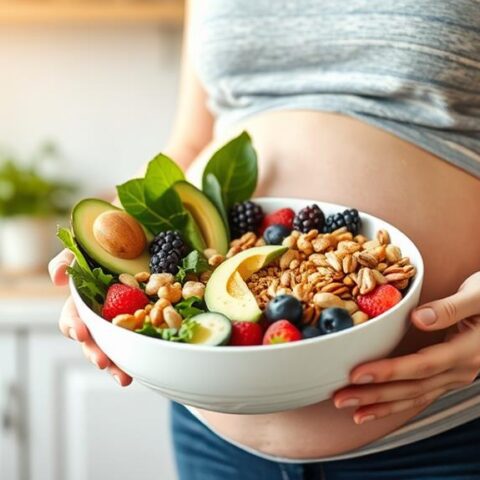
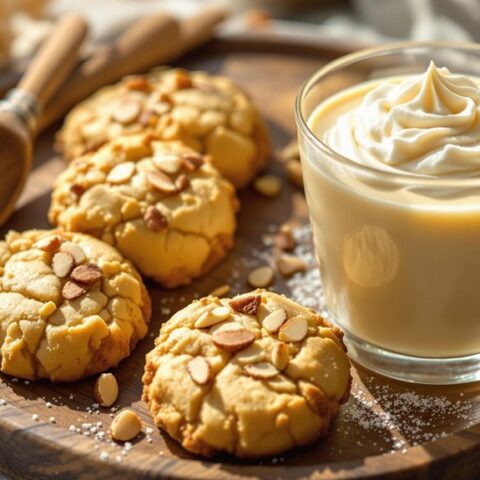
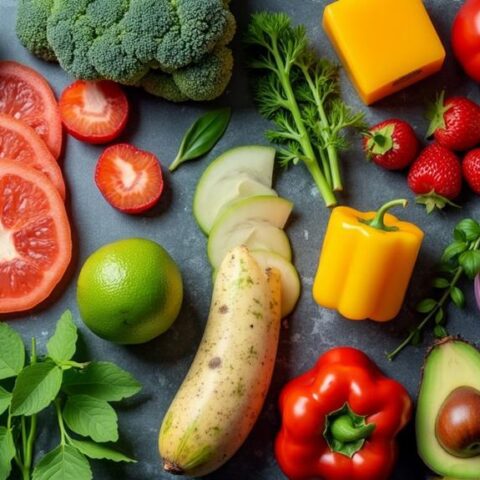

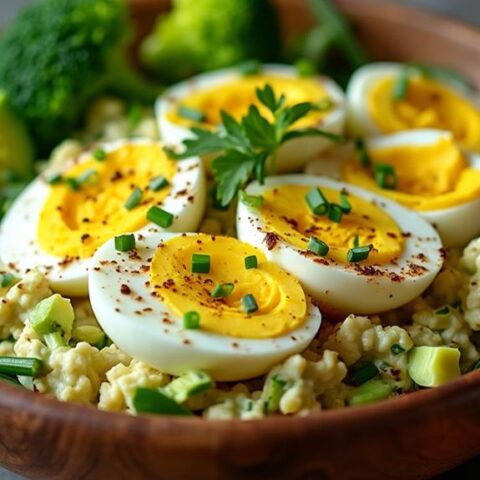
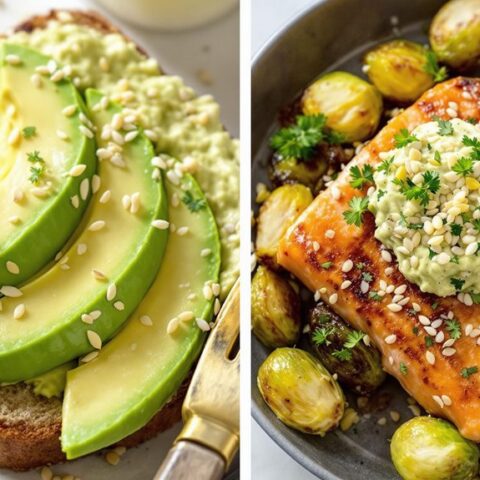




No Comments